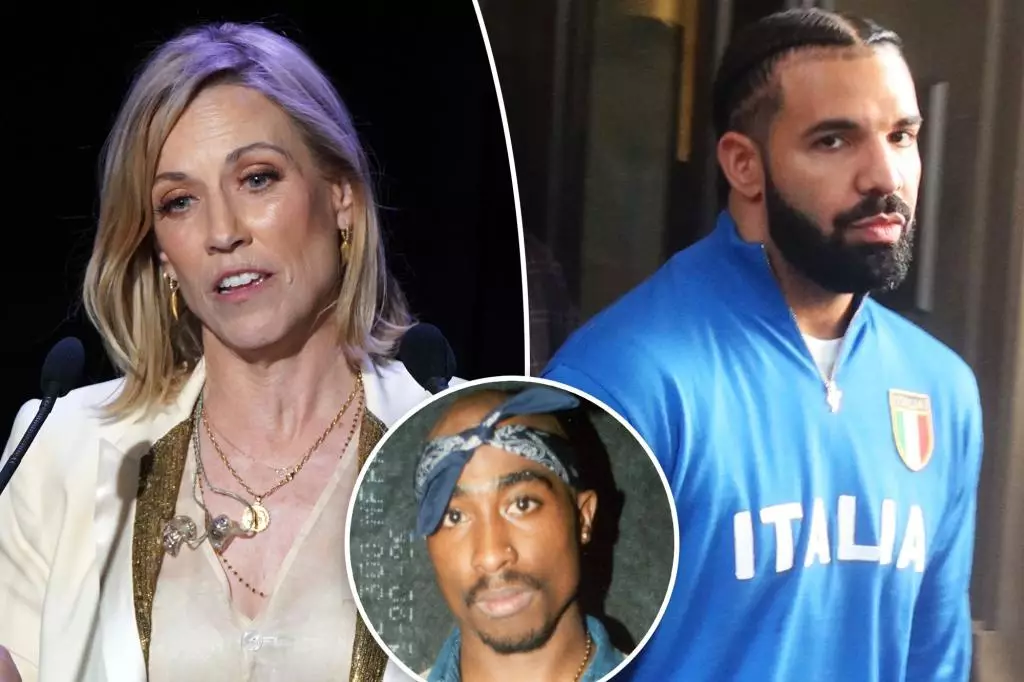Sheryl Crow recently spoke out against Drake for using an AI-generated version of Tupac Shakur’s voice in his diss track towards Kendrick Lamar. Calling the move “hateful,” Crow expressed her displeasure in a BBC interview, stating that bringing deceased artists back to life in such a manner is disrespectful and goes against the essence of their being. Despite potential regrets from Drake, Crow believes that the damage has already been done and that the public will not easily forget or forgive such actions.
In response to the controversy, prominent entertainment lawyer Howard E. King, representing the Shakur estate, issued a cease and desist letter to Drake, demanding the immediate removal of the offending song from streaming services. King described the usage of Tupac’s voice as a flagrant violation of the late rapper’s publicity and legal rights, as well as a blatant abuse of his legacy. The estate, he claimed, would never have approved such use, especially against Lamar, who has shown respect for Tupac both publicly and privately.
Following the cease and desist letter, Drake removed the song from circulation and addressed the controversy in a subsequent diss track aimed at Lamar. In “Family Matters,” Drake shifted blame onto Lamar for instigating the legal action from Tupac’s estate, dismissing the cease and desist as unwarranted. The feud between the two rappers escalated as Lamar retaliated in his own No. 1 hit, “Not Like Us,” accusing Drake of disrespecting Tupac and warning of consequences.
The use of AI-generated voices in music has sparked debates about ethics and respect for deceased artists. While some may argue that it allows for a continuation of their legacy, others, like Crow, see it as a distortion of their original artistry and a violation of their memory. As technology continues to evolve, the line between homage and exploitation becomes increasingly blurred, raising questions about the limits of creativity and artistic integrity. The case of Drake and Tupac serves as a cautionary tale of the potential pitfalls of using AI in music production.
The controversy surrounding Drake’s use of an AI-generated Tupac Shakur voice in his diss track towards Kendrick Lamar highlights the sensitive nature of honoring the legacies of deceased artists. While creative expression is essential in music, it should not come at the cost of disrespecting the memory and work of those who have passed. As the music industry grapples with the implications of technology on artistic integrity, it is crucial for artists to tread carefully when incorporating AI into their work to avoid unnecessary conflicts and backlash from both fans and the estates of deceased artists.


Leave a Reply